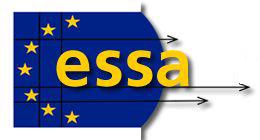


Presentation
Computer simulation is a widely recognised method for modelling and understanding complex phenomena. In the last decades, a huge community of computational scientists has grown in different fields of research (i.e., in natural, social and computer sciences). Within such a community, scholars often share the same tools, methods, concepts. They sometimes devote their efforts to the challenge of understanding common issues about complexity. In doing so, these scholars are tracing the outline of a cross-disciplinary computational science. Such a progress, which is extensively emerging from many distributed efforts as a kind of collective effervescence, requires to be intensively matched with serious epistemological and methodological reflections. It is widely recognised that time has come to reflect upon epistemological and methodological pre-conditions and consequences of simulation as a research tool.
The first EPOS workshop, organised by Ulrich Frank and Klaus G. Troitzsch at the University of Koblenz in 2004, was a first attempt to bring together natural and social scientists, philosophers and computer scientists, to address such epistemological and methodological issues. Several subjects of discussion were intensively tackled at that time: the link between theory and models, the empirical validation of agent-based models in natural and social sciences, the relation between models and truth, the role of stylized facts, and so forth.
The results of the first edition have been collected by Ulrich Frank and Klaus G. Troitzsch and published, after a further reviewing process, in a special issue on “Epistemological Perspectives on Simulation”, Journal of Artificial Societies and Social Simulation, vol. 8, no. 4, 2005.
This second edition of the workshop aims at reproducing the same positive and constructive atmosphere which permeated the first edition in Koblenz.